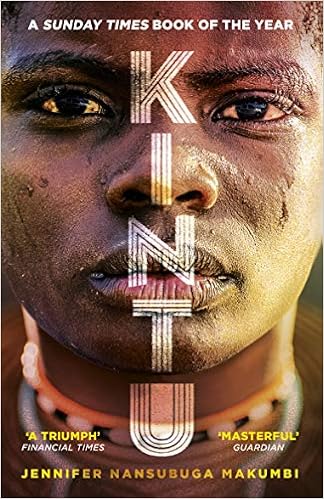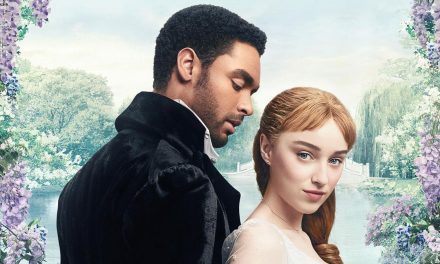“Kintu felt for Gitta. He knew the snare of being a man. Society heaped such expectations on manhood that in a bid to live up to them some men snapped.”
Kintu by Jennifer Nansubuga Makumbi
One of the reasons I enjoy reading is for the escapism it offers. However, the academic in me loves the fact that I can learn about a range of historical events through books. Allowing me to gain insight into worlds I could never experience for myself and learn about perspectives in history I was not taught in school. As a Nigerian that was mostly educated outside the African continent, historical fiction novels are part of what have helped me learn about my roots. Western education often makes it seem like African history is all about slavery and colonization; whereas, reading historical fiction allows me to recognise the rich culture, heritage and agency of African people that I can identify with. Because of my desire to learn about perspectives in history that were underrepresented in my Western education, I mostly read historical novels that center on African and Asian people.
- Historical fiction educates on underrepresented historical events
Depending on the educational system you were raised in, there is a specific set of history you were taught. Understandably, there is only so much history that can be taught in school, thus I now rely on historical novels to learn about historical perspectives I was not privy to in school. Historical fiction offers readers an avenue to take matters into their own hands and learn about voices, often those of people of colour, and events in history that were silenced or erased. This includes events like the Nigerian-Biafran War of 1967-1970, which is still not taught in Nigerian schools, the often forgotten Palestinians who are still paying the price for the Jewish Holocaust, and the ‘comfort women’ that were forced into sexual slavery by the Japanese Imperial Army during World War II and who were silenced by shame.
It is one thing to read about the facts of such events in textbooks, but it’s another to live these events through an immersive fictional narrative that adds a human touch to a historical account. Historical fiction provides insight into how big historical events affected common people. These novels do not just tell us what happened, they tell us how it felt. They personalise historical events and make us empathise with the experiences of others, ultimately leading to a better understanding and a deeper connection to these events.
- Historical fiction reveals the evolution of human thought and behaviour, particularly in regards to gender roles
Reading historical fiction from various time periods allows us to observe how human thought and behaviour has evolved over time. Through these books, you experience how topics and actions that were seen as immoral, scandalous or shocking in the past are now commonplace. It’s important to see our current society in context, otherwise we live under the assumption that people have always acted and thought like we do.
For example, historical novels allow readers to observe changes in how men and women interact and how women were viewed and valued depending on the time, period and culture. It reminds us that there was a time when a woman’s survival was dependent on whom she married and this was accepted as the norm. Whilst it is possible to learn about these changes through textbooks, fiction allows you to experience these movements in real time. You love the characters, you walk in their shoes, see what they see, feel what they feel. You get to not just read about change, but to live it, see it unfold. Reading historical fiction is, quite literally, seeing history in the making.
- Historical fiction reveals that love and hate are constant
Although, there have been many changes in how people think, reading historical fiction reveals that even after many decades or centuries certain beliefs never change. Women are still fighting for equality. Racism remains rampant all over the world. The class divide is as strong as ever. Fear and social identity still drive major historical events. With the constancy of human traits such as love, fear and desire, it is no surprise history tends to repeat itself. Moreover, identifying the similarities between the past and the present could help predict the future course of humanity.
Book Recommendation
Historical fiction covers a wide range of subject matter from the unsung heroines of a war, to the fall of an empire, to the forgotten victims of war. I particularly enjoy reading historical fiction by African and Asian authors, about African and Asian people, so here is one of my favourites.
Uganda: Kintu by Jennifer Nansubuga Makumbi
In 1750, Kintu Kidda sets out on a journey to the capital to pledge allegiance to the new leader of the Buganda Kingdom. Along the way, a rash action in a moment of anger unleashes a curse that will plague his family for generations. Each chapter that follows details the life of one of Kintu’s descendants and the manifestations of the generational curse in their life, while asking the question: what does it mean to live in the shadow of a curse while trying to create one’s own future?
I was highly impressed by this book. The plot was intense. The writing was phenomenal. This book was storytelling at its finest. I enjoyed the reimagination of life in the pre-colonial Buganda Kingdom. I enjoyed how the oral traditions, folktales, and history were seamlessly woven into the story. The book explored the blending together of, and subsequent conflict between, tradition and modernity, especially as it pertains to traditional spirituality, Christianity and atheism. Reading this book inspired me to read further into some of Uganda’s major historical events like the presidency of Idi Amin from 1971 to 1979, The Ugandan-Tanzanian War of 1978 to 1979 that led to the overthrow of Idi Amin and the Ugandan Bush War of 1981 to 1986.













